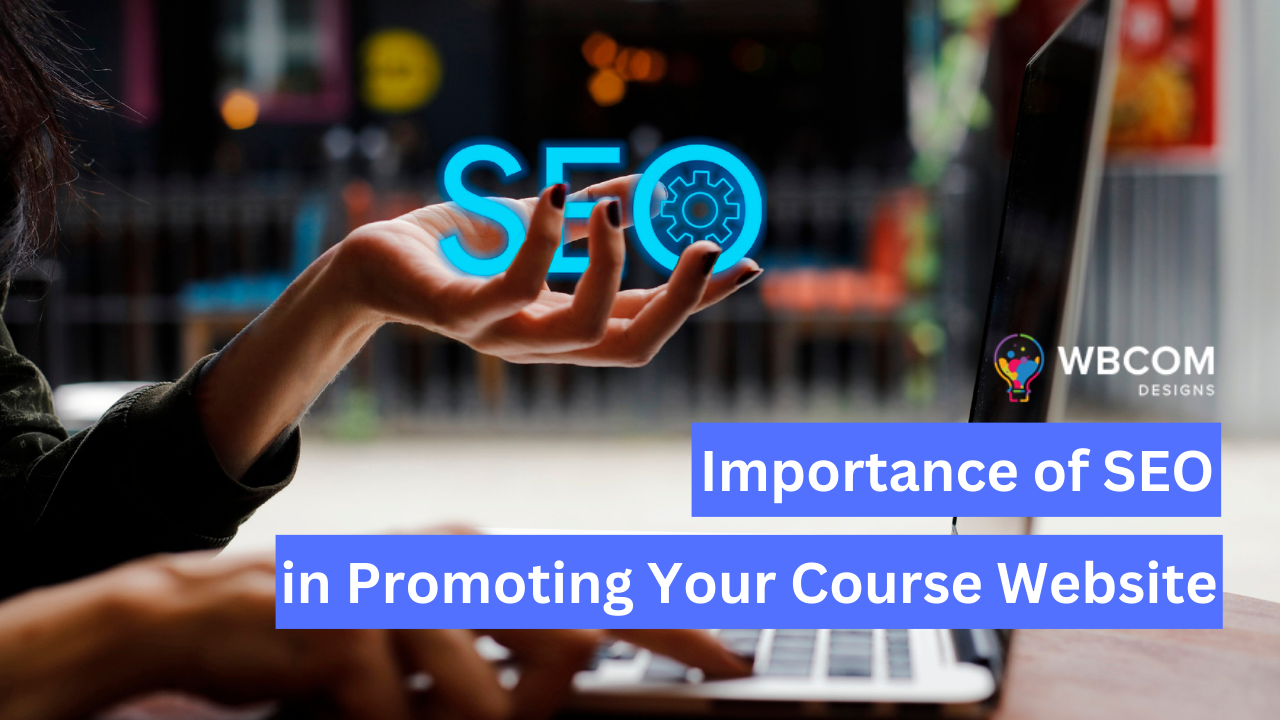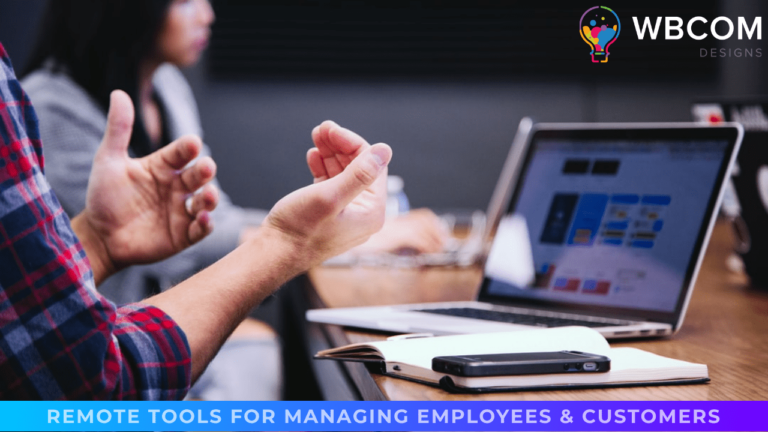Are you struggling to get your course website noticed among the millions of websites? Are you wondering how to increase website traffic and boost course enrollment? Look no further than SEO! SEO, or search engine optimization, is the key to promoting your course website and reaching your target audience. In today’s digital age, SEO is no longer a luxury but a necessity for any business or individual looking to succeed online. In this blog post, we’ll explore the importance of SEO in promoting your course website and share tips and tricks for optimizing your website to increase traffic and boost enrollment. Get ready to take your course website to the next level!
Table of Contents
ToggleUnderstanding SEO
SEO, or search engine optimization, is improving the visibility and ranking of a website in search engine results pages (SERPs). It involves various techniques and strategies to improve website content, structure, and authority to make it more attractive to search engines like Google.
Here are some essential SEO terms and concepts you should be familiar with:
- Keywords: These are the words or phrases users enter into search engines to find relevant content. Keywords are an essential part of SEO as they help search engines understand what your content is about and match it to relevant user queries.
- Backlinks: These are links from other websites that point to your website. Backlinks are an essential factor in search engine ranking algorithms as they indicate the authority and credibility of your website.
- On-page optimization: This refers to the process of optimizing individual web pages to improve their visibility and ranking. On-page optimization includes optimizing titles, meta descriptions, headings, content, and other elements to make them more relevant and attractive to search engines.
- Off-page optimization: It involves optimizing elements outside of your website to improve its authority and credibility. Off-page optimization includes building backlinks, social media marketing, and other techniques to enhance your website’s online reputation.
To understand SEO, it’s essential to have a basic understanding of how search engines work. When a user enters a search query, search engines use complex algorithms to scan their index of websites and return the most relevant and valuable results to the user. Search engines consider many factors when ranking sites, including relevance, authority, and user experience.
You can use many different SEO techniques to improve your website’s visibility and ranking. Some of the most common include:
- Keyword research: It involves identifying the most relevant and valuable keywords for your website and using them strategically throughout your content.
- Content creation: Creating high-quality, relevant, and valuable content is essential for SEO. Good content can help improve your website’s authority and attract backlinks.
- Link building: Building high-quality backlinks from reputable websites is essential to SEO. Link building involves various techniques, including guest posting, broken link building, and outreach.
- Technical optimization: This involves optimizing your website’s technical structure to make it more user-friendly and attractive to search engines. Technical optimization includes improving site speed, mobile optimization, URLs, and site structure.
By understanding these key SEO terms and concepts, how search engines work, and standard SEO techniques, you can optimize your website and improve its visibility and ranking in search engine results pages.
Keyword Research
Keyword research is a critical step in SEO as it helps you understand what your target audience is searching for and identify the most valuable and relevant keywords for your website. Here’s how to research keywords for your online course website:
- Brainstorm topics: Start by brainstorming the issues and themes most relevant to your online course. This will help you identify the main keywords and phrases you should target.
- Use keyword research tools: There are many keyword research tools available, including Google Keyword Planner, Ahrefs, SEMrush, and Moz Keyword Explorer. These tools can help you identify search volume, competition, and related keywords to target.
- Analyze competition: Look at your competitors’ actions and identify the keywords they are targeting. This can help you find gaps in the market and identify new opportunities to target.
- Consider long-tail keywords: Long-tail keywords are longer and more specific phrases with lower competition and higher conversion rates. Consider targeting these keywords, as they can help you reach a more targeted audience.
Here are some best practices for choosing the right keywords for your online course website:
- Choose relevant keywords: Make sure your keywords are relevant to your online course and the content on your website.
- Target high-value keywords: Focus on keywords with high search volume and low competition to maximize your visibility and traffic.
- Consider user intent: Consider the user’s intent behind the keyword and ensure your content aligns with their needs and interests.
- Use a mix of short and long-tail keywords: Incorporate a combination of brief and long-tail keywords to reach a wider audience and improve your chances of ranking for multiple keywords.
- Avoid keyword stuffing: Avoid overusing keywords in your content, which can be seen as spammy by search engines and hurt your ranking.
Researching and targeting the right keywords for your online course website can improve your visibility and attract more targeted traffic.
On-Page Optimization
On-page optimization is a crucial aspect of SEO that involves optimizing individual web pages to improve their ranking and visibility in search engine results pages (SERPs). Here’s why optimizing website content is essential for SEO:
- Improves relevance: Optimizing website content, including page titles, headings, meta descriptions, and URLs, can help search engines understand what your content is about and match it to relevant user queries.
- Increases click-through rate (CTR): Well-optimized content can help improve your CTR by providing a clear and compelling description of your content and encouraging users to click through to your website.
- Improves user experience: Good on-page optimization can help improve user experience by making your website more user-friendly and easy to navigate.
Here are some tips for optimizing page titles, headings, meta descriptions, and URLs:
- Page Titles: Your page title should be concise and include your primary keyword at the beginning. Aim for a length of around 60 characters and avoid keyword stuffing.
- Headings: Use headings (H1, H2, H3) to organize your content and make it more readable. Make sure your primary keyword appears in at least one title.
- Meta Descriptions: Your meta description should be compelling and clearly describe your content. Aim for a length of around 155 characters and include your primary keyword.
- URLs: Your URLs should be short, descriptive, and include your primary keyword. Use hyphens to separate words, and avoid using underscores.
Here’s how to optimize images and videos for SEO:
- Optimize file names: Use descriptive file names that include your primary keyword.
- Use alt tags: Alt tags are text descriptions of your images and videos that help search engines understand what they are about. Include your primary keyword in alt tags.
- Compress images: Compressing images can help improve your website speed and user experience.
- Add captions and transcripts: Adding captions and transcripts to your videos can help improve accessibility and provide additional text for search engines to crawl.
Optimizing your website content, images, and videos for SEO can improve your visibility and attract more targeted traffic to your website.
Off-Page Optimization
Off-page optimization is an essential aspect of SEO that refers to your activities outside your website to improve your search engine rankings. Here’s an overview of off-page SEO:
- Backlinks: Backlinks are links from other websites to your site. They are an important ranking factor as they signal to search engines that your content is valuable and relevant.
- Social media: Social media can help you build brand awareness, drive traffic to your site, and improve your visibility in search engine results.
- Online directories: Listing your business in relevant online directories can help you build backlinks and improve your online visibility.
- Guest blogging: Writing high-quality guest posts for other websites can help you build backlinks and drive traffic to your site.
- Influencer outreach: Partnering with influencers in your niche can help you reach a wider audience and build backlinks.
Here’s why backlinks are essential for SEO:
- Improves authority: Backlinks signal to search engines that your content is valuable and authoritative, which can improve your search engine rankings.
- Increases traffic: Backlinks from high-quality websites can drive traffic to your site, improving your engagement metrics and signaling to search engines that your content is valuable.
- Improves relevance: Backlinks from relevant websites can help improve your relevance for specific keywords and topics.
Here are some strategies for building backlinks:
- Create high-quality content: Creating high-quality content that is useful, informative, and engaging can help attract backlinks naturally.
- Outreach: Reach out to other websites in your niche and offer to provide value in exchange for a backlink.
- Guest blogging: Writing high-quality guest posts for other websites can help you build relationships and earn backlinks.
- Broken link building: Finding broken links on other websites and offering to replace them with your content can help you earn backlinks.
By implementing off-page optimization strategies, including building high-quality backlinks, you can improve your search engine rankings, drive traffic to your website, and improve your online visibility.
Local SEO
Local SEO optimizes your website and online presence to rank higher in local search results. Local SEO is essential for businesses that serve a specific geographic area and want to attract customers in their local community.
Here’s why local SEO is essential for online course websites:
- Attracts local students: Local SEO can help you reach potential students in your local area who are searching for courses like yours.
- Improves visibility: Optimizing your website and online presence for local SEO can help you appear in local search results and enhance your online visibility.
- Boosts credibility: Visiting local search results can help build credibility and trust with potential students looking for courses like yours.
Here are some best practices for local SEO:
- Claim your Google My Business listing: Claiming your Google My Business listing is a crucial step in local SEO as it helps you appear in local search results and provides important information about your business, including your address, phone number, and hours of operation.
- Optimize your website for local keywords: Use location-based keywords in your website content, page titles, and meta descriptions to signal to search engines that you serve a specific geographic area.
- Get listed in local directories: List your business in relevant local directories to improve your online visibility and build backlinks.
- Collect and respond to reviews: Encourage students to leave reviews on your Google My Business listing and other relevant review sites. Respond to them promptly to show your engagement and commitment to your students.
By implementing these best practices for local SEO, you can improve your online visibility, attract more local students, and build credibility and trust with your target audience.
Wrapping Up Words | Importance of SEO in Promoting Your Course
In conclusion, SEO is essential for promoting your course website and reaching a wider audience. By implementing SEO strategies, you can improve your website’s visibility, increase traffic, and ultimately boost course enrollment. So don’t neglect the power of SEO – make it a priority in your digital marketing strategy and watch your website soar to new heights!








